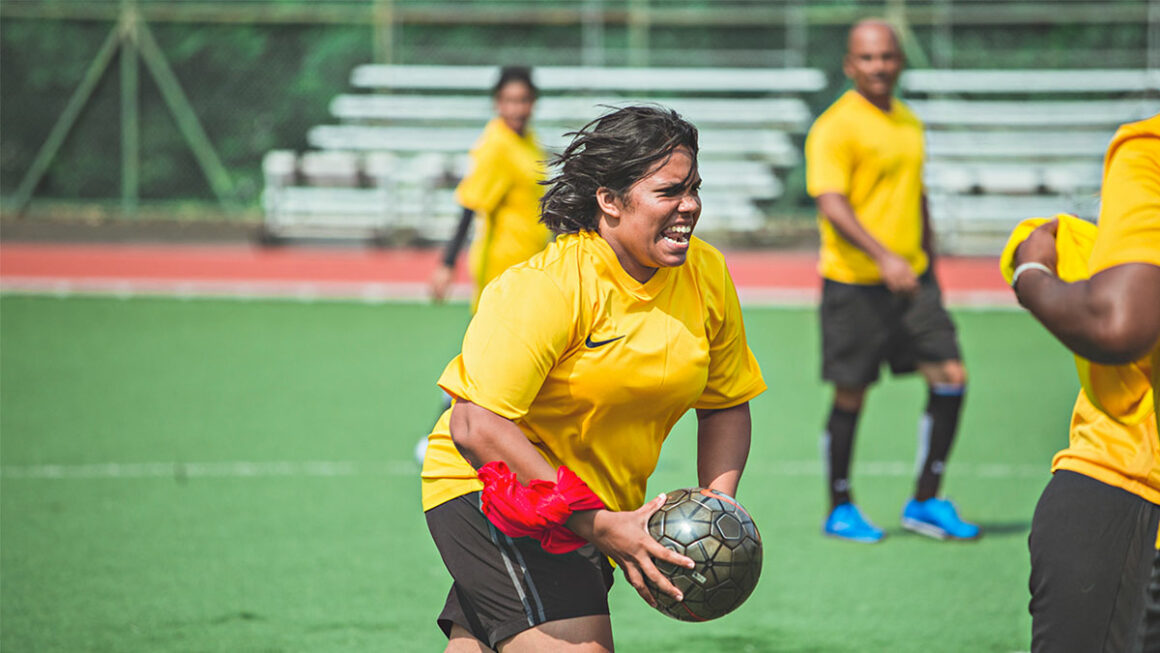The universal language of football is raw and visceral. It is emotionally charged and dramatically powerful. It is a unifying force that can forge life-changing bonds among the most diverse of groups.
As a volunteer coach with Special Olympics Bharat in Goa for the past eight years, I have personally witnessed the power of the world’s most popular sport.
Athletes from all over India – who speak different dialects and languages, who come from different backgrounds, with and without intellectual disabilities – have come together as strangers, forming friendships as they trained together, and finally leaving a tournament as a family.
I coached the Special Olympics women’s football team for an international tournament in 2018. When we first formed the team, the players had nothing in common except for their love of football. There were athletes with and without intellectual disabilities on the same team, and they could barely communicate.
Over months of training, it was moving to see how the team naturally bonded, looked out for one another, and became inseparable. In fact, the players are still in touch today although all of them have returned to their homes in different cities and states across India. They are constantly texting, exchanging photographs, sharing jokes and asking about each other.
Being a volunteer coach for athletes with intellectual disabilities isn’t easy. It takes patience and effort. They may not understand your instructions the first time, and you have to find creative ways to help them comprehend. You can’t force them to do your bidding by ordering them around. Some of them may just stand still and not move. You must gain their trust and respect.
One time, I had an athlete on my team who could speak neither English nor Hindi. It was a tedious task getting her to understand what we needed her to do. We used gestures and non-verbal cues. Some players also tried to help interpret in whatever way they could. It was quite a funny process. We succeeded eventually, and it was a win-win situation for everyone. Not only did she end up learning a bit of English, we also picked up some of her dialect.
I have learnt amazing life lessons and the value of humility and gratitude from all the players I’ve worked with. Some of them are born with so little, but they do not ever give up.
So don’t pity them. Don’t shun them. That is not what they need from society. Understand that they are just like you and I. They have feelings, dreams, and they’re here for a purpose. What they need is an opportunity to get involved in society, have fun, live life, and to show the world what they can do. It’s not about winning a medal, but simply, a chance to participate.
When I first stepped onto the football field as a volunteer to play sport with athletes with intellectual disabilities years ago, I never imagined that I would come this far in my journey. To become a coach, a head coach, and eventually a head of delegation leading a team to represent India in international competitions.
It has been an immensely proud feeling; and I don’t have a single regret.

